Debate: Should Children's Literature Improve Morale and Character?
VerifiedAdded on 2020/06/05
|5
|761
|75
Essay
AI Summary
This essay presents a debate on the purpose of children's literature, specifically focusing on whether its primary goal should be to improve the morale and character of young readers. The essay introduces the concept of character teaching as a curriculum designed to instill positive traits in children, citing Almerico (2014) and Gavin (2012) to support the idea that literature is an effective tool for teaching values like honesty, courage, and kindness. It highlights the importance of integrating literature with character development, as cautioned by Jamison (2013). The essay also emphasizes the role of literature in enhancing imagination and promoting teamwork, as well as its ability to provide lessons on reading skills and social studies, as stated by NCSS (Miller, 2013). However, it acknowledges the counter-argument that some literature may have negative impacts, as noted by Agboola and Tsai (2012), stressing the need for careful evaluation of children's literature.
1 out of 5
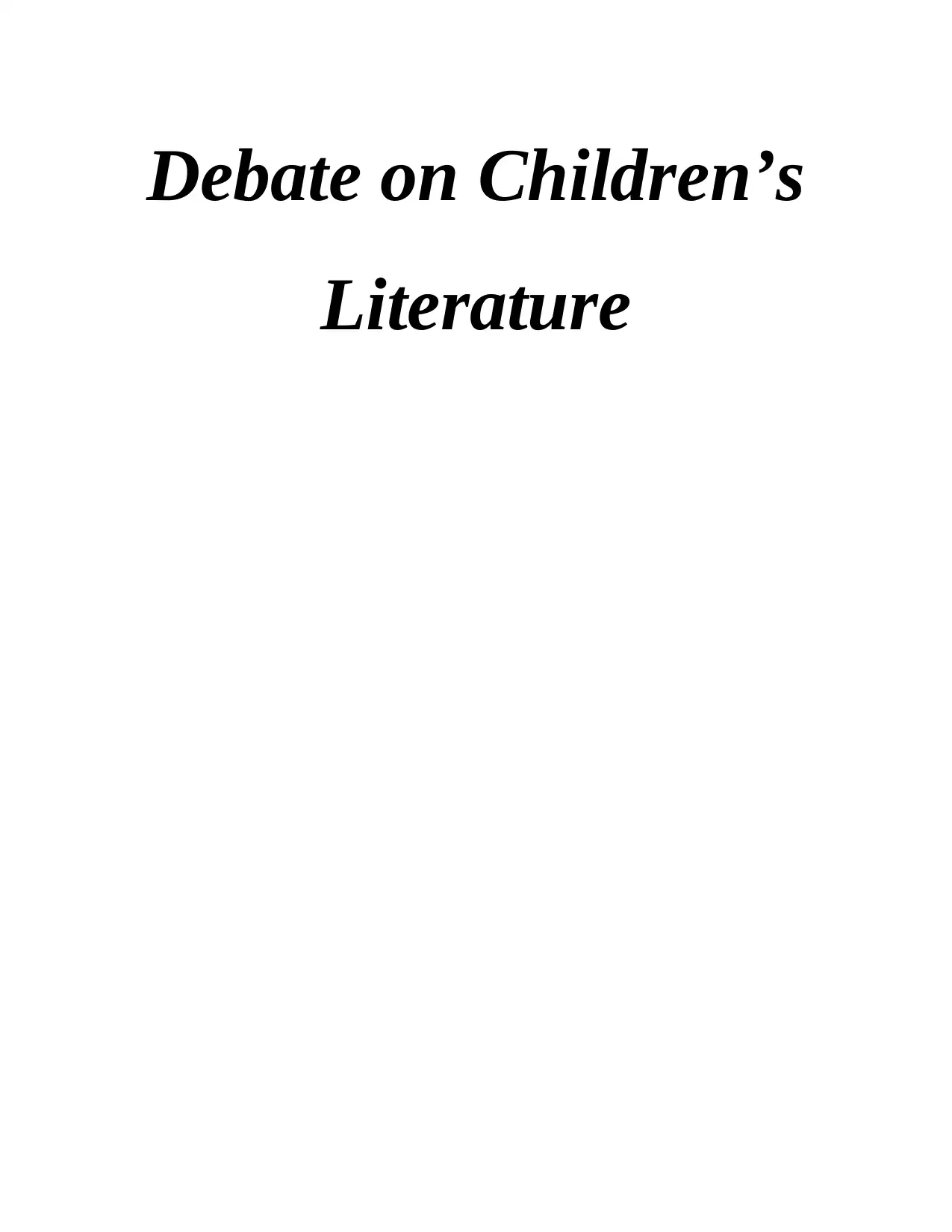
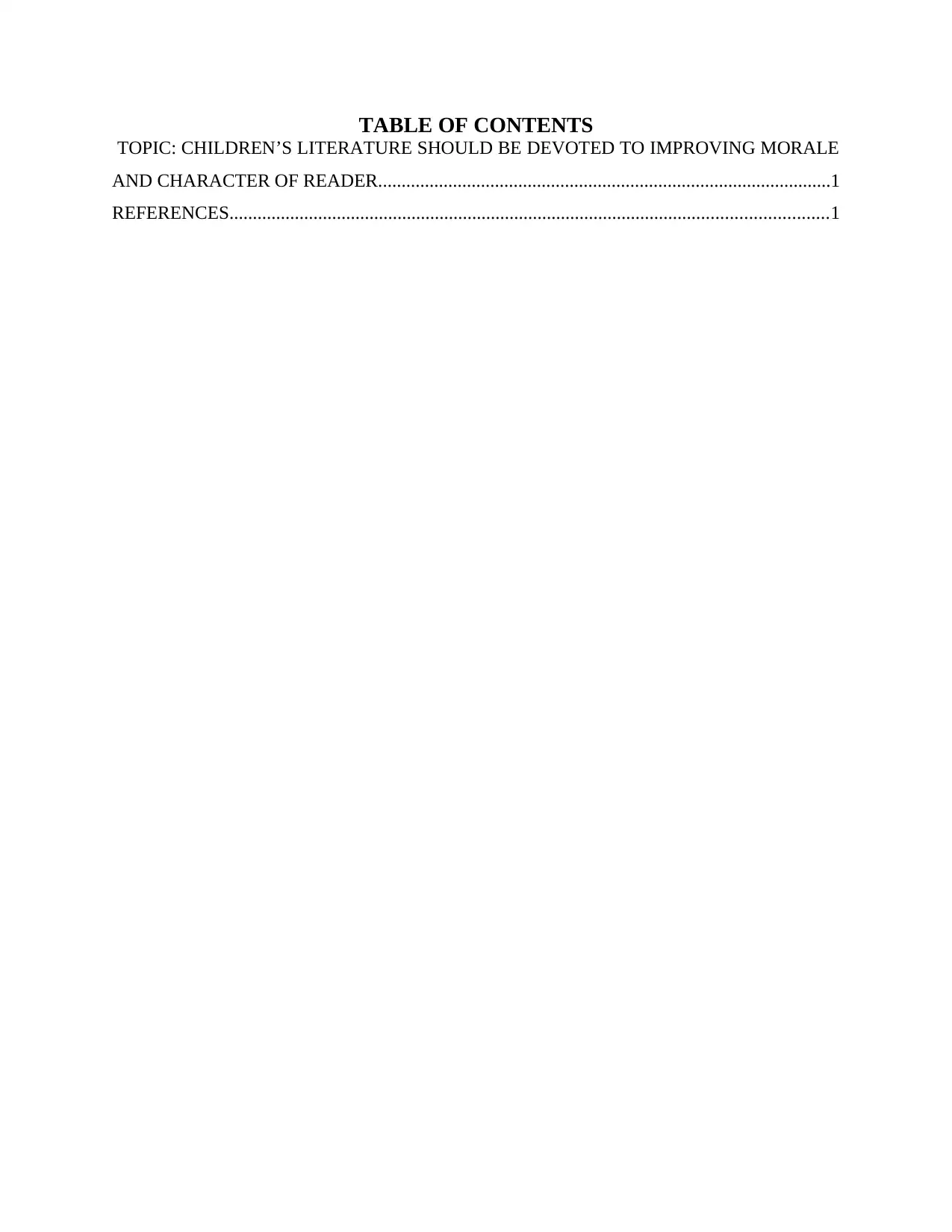
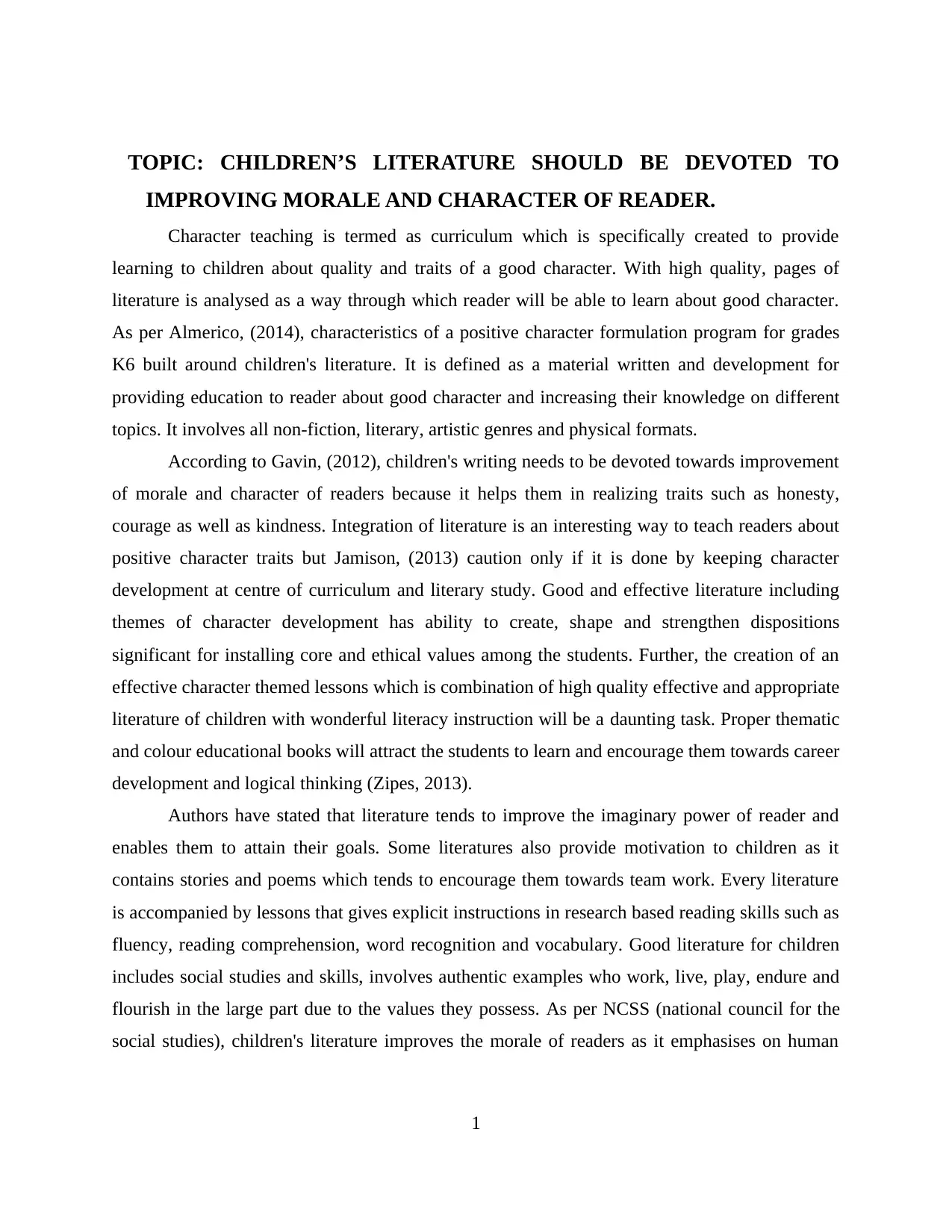

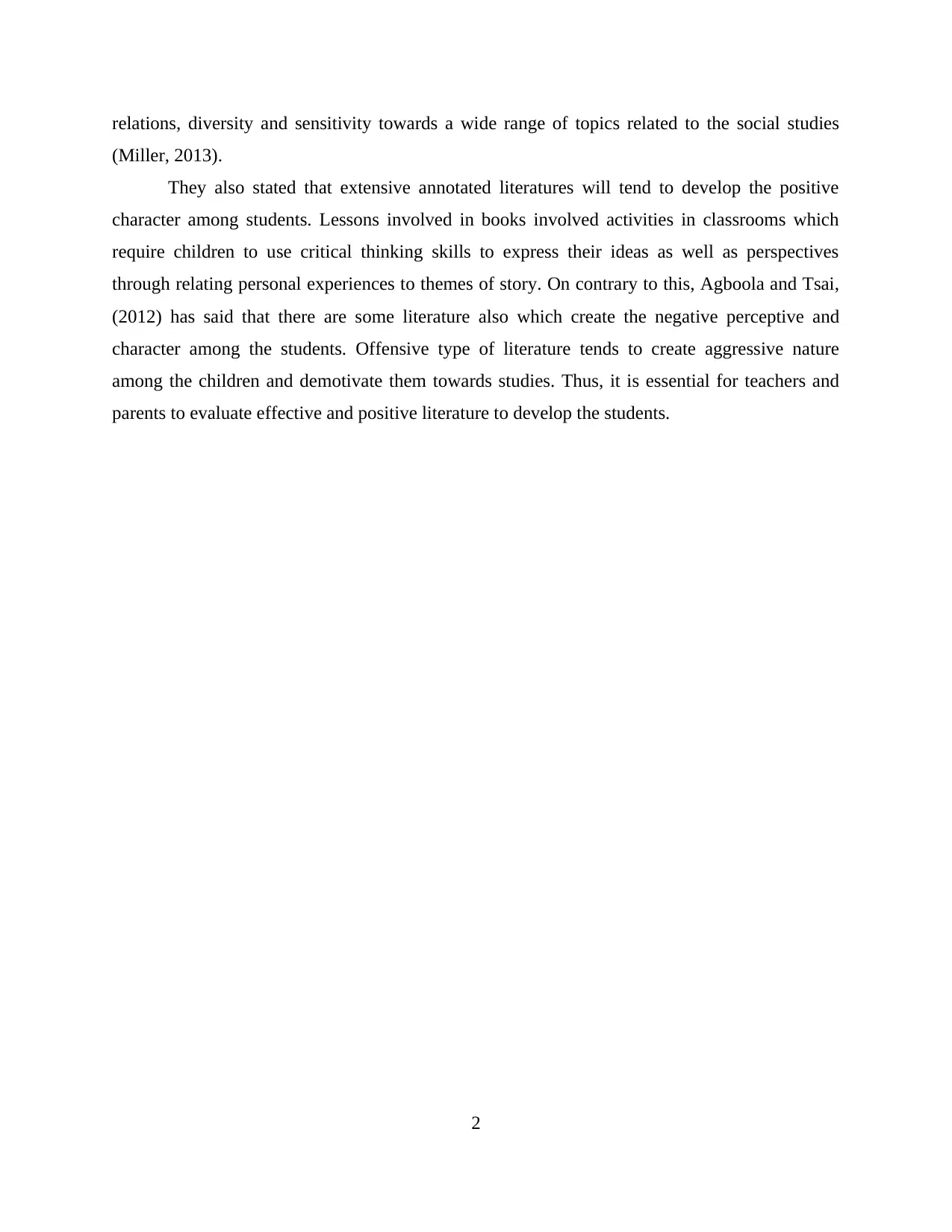
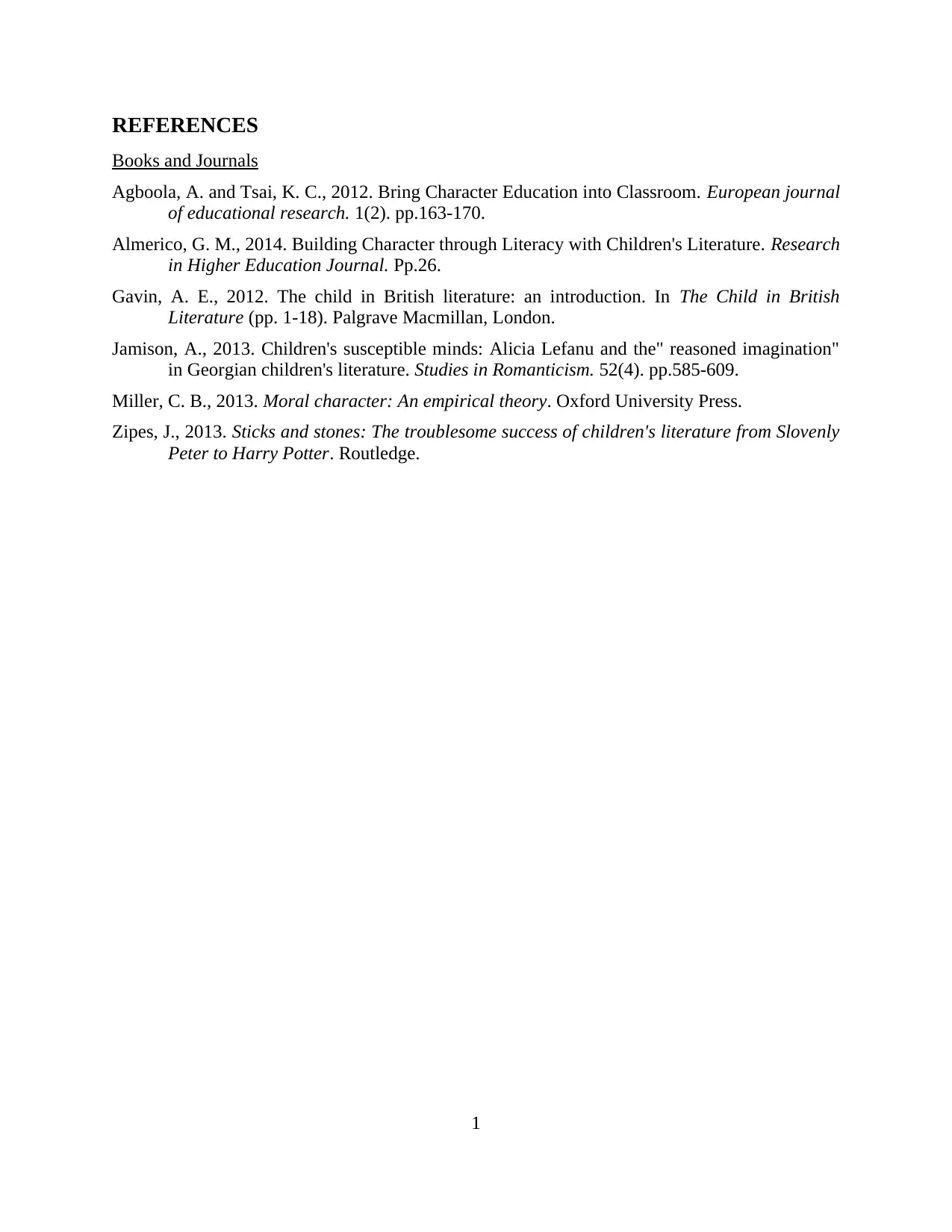






![[object Object]](/_next/static/media/star-bottom.7253800d.svg)